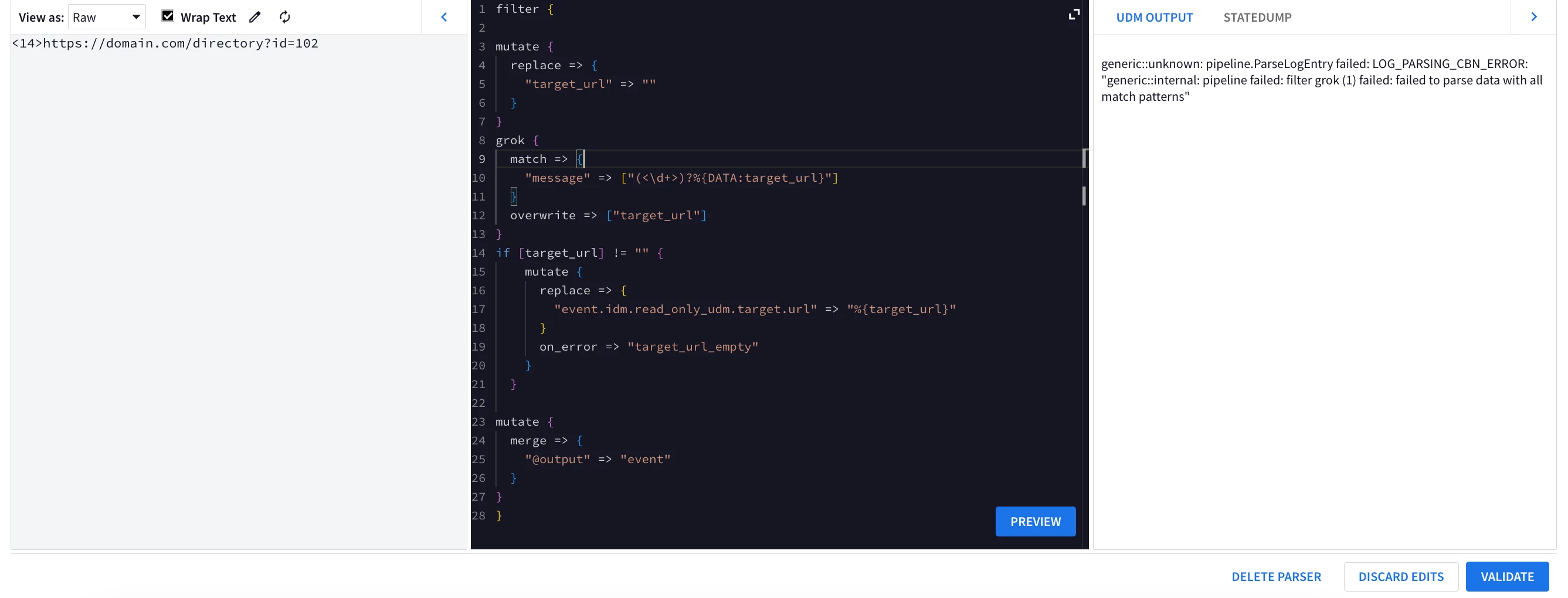Hey @tnxtr ,
The error states your regex pattern is invalid and results in no matches.
One issue is you need to double escape your regex for matching digits.
E.g `\\d+` should be `\\\\d+`
GROK provides a bunch of precanned statements you can use - https://github.com/elastic/logstash/blob/v1.4.2/patterns/grok-patterns
You're also going to run into an issue since UDM requires some metadata. Here is an updated working parser snippit using the GROK pattern URI. I also set some placeholder metadata fields so you can see some output.
filter {
mutate {
replace => {
"target_url" => ""
}
}
mutate {
replace => {
"event.idm.read_only_udm.metadata.vendor_name" => "VEndor"
"event.idm.read_only_udm.metadata.product_name" => "Product"
"event.idm.read_only_udm.metadata.product_version" => "1.0"
"event.idm.read_only_udm.metadata.log_type" => "YOUR_LOG_TYPE"
"event.idm.read_only_udm.metadata.event_type" => "GENERIC_EVENT"
}
on_error => "zerror.replace_metadata"
}
grok {
match => {
"message" => ["(<\\\\d+>)%{URI:target_url}"]
}
on_error => "no_target_url"
overwrite => ["target_url"]
}
if [target_url] != ""{
mutate {
replace => {
"event.idm.read_only_udm.target.url" => "%{target_url}"
}
on_error => "target_url_empty"
}
}
mutate {
merge => {
"@output" => "event"
}
}
}
UDM output from above parser
metadata.event_timestamp"2025-01-23T15:16:35Z"
metadata.event_type"GENERIC_EVENT"
metadata.vendor_name"VEndor"
metadata.product_name"Product"
metadata.product_version"1.0"
metadata.log_type"YOUR_LOG_TYPE"
target.url"https://something.com"






